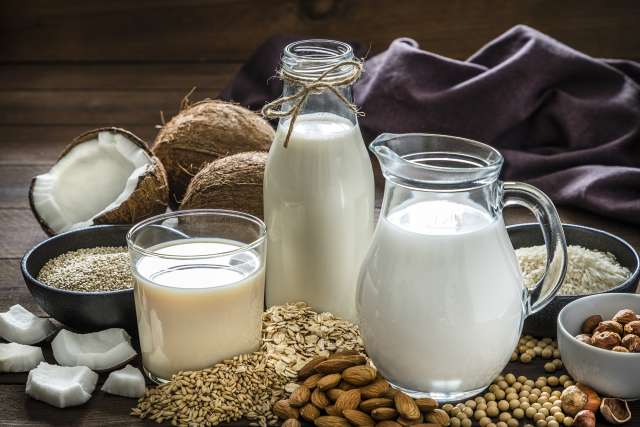Dear Doctors: You recently mentioned you steer your patients away from cow’s milk. I know some people think it’s bad for you, but could you please explain? Is it the fat in milk that people think makes it unhealthful, or is it the milk itself? I read that yogurt is OK. Why would that be different?
Dear Reader: We have been shifting to a plant-forward approach in all areas of nutrition in our own practices. This is due to the growing awareness of the environmental impacts of dairy and meat production, and also the range of potential health issues associated with both of those food groups. When it comes to cow’s milk, it can cause digestive problems, including gas, bloating, stomach pain and diarrhea. Cow’s milk is also linked to an increased likelihood of developing acne, as well as flares of some inflammatory skin conditions, such as eczema.
The digestive issues related to cow’s milk are caused by an inability to properly digest lactose, the sugar molecule that occurs naturally in the milk of mammals. Known as lactose intolerance, or lactose malabsorption, it is estimated to affect more than 65% of adults. Interestingly, many people who can’t tolerate cow’s milk have no problem with yogurt. This is due to the presence of live cultures, which help break down lactose. The live cultures in yogurt and similar fermented dairy products, such as kefir, are also beneficial to the health and diversity of the gut microbiome.
Another factor in the discussion of dairy products is saturated fat, which is present in varying amounts in skim, low-fat and whole milks. Although this was once unilaterally considered unhealthful, a more nuanced view is evolving. Newer research suggests that whole milk, which is high in omega-3 fatty acids, may reduce the risk of developing metabolic syndrome. It may also help protect against Type 2 diabetes. On the negative side, drinking whole milk can lead to increases in blood cholesterol levels. Bottom line -- more research and more data crunching are needed before this particular topic gets resolved.
And this brings us back to plant-based milks. We have come a long way from the days when soy milk, which you had to seek out in a specialty market, was the only choice. Today, virtually all major food stores offer a wide selection of plant-based milks made from almonds, oats, cashews, macadamia nuts, coconut and our old friend, the soybean. These forms of milk are typically lower in calories than dairy milk, and they do not contain saturated fat. The trade-off is that they are also lower in protein, calcium and potassium than cow’s milk. Some also contain added sugars, flavorings, emulsifiers and other additives. That makes it important to carefully read the ingredients label, as well as the nutritional information, before settling on a product.
Although plant-based milks are now our preferred option, we have nothing against cow’s milk. Some of our patients have a strong preference for animal milks, which we understand. The goal is for the daily serving of one to two cups of milk or yogurt to help meet each person’s unique nutritional needs.
(Send your questions to [email protected], or write: Ask the Doctors, c/o UCLA Health Sciences Media Relations, 10960 Wilshire Blvd., Suite 1955, Los Angeles, CA, 90024. Owing to the volume of mail, personal replies cannot be provided.)





